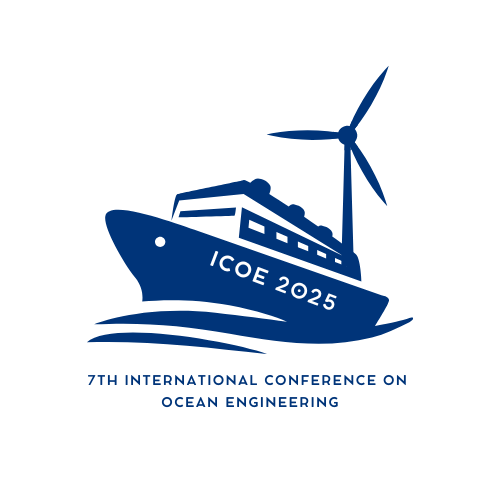The 7th International Conference on
Ocean Engineering (ICOE 2025)
With a theme of Blue Economy and Sustainability
Venue: ICSR, IIT Madras, Chennai, India
Dates: September 14-18, 2025
Post Conference Workshop
The registration for the workshop sessions will be open soon.
Title : How to work with observations from experiments : Tools from Python and Matlab
Coordinator: Dr. Tarun K. Chandrayadula
Engineers often work with observations from simulation or real experiments. The data is usually imperfect because of noise, and other experimental limitations. The objective in working with the data is usually to test a hypothesis, a model, estimate parameters or fit trends. This workshop discusses the basics of statistics for the practicing engineer or the research scholar. The basics are then used to build tools for analysing the data. Workshop includes computer exercises using Matlab/Python. Participants must register, and bring their own laptops. Familiarity with statistics, and linear algebra at the undergraduate level is required.
Topic: Hands on Laboratory Experimentations
Coordinator: Dr. KG Vijay
The International Conference on Ocean Engineering (ICOE) 2025 is proud to offer participants an unparalleled opportunity to engage in Hands-On Experimental Sessions at the state-of-the-art facilities of the Department of Ocean Engineering, IIT Madras. These sessions are designed to bridge the gap between theory and real-world applications. Physical model experiments are widely regarded as the closest approximation to real-world scenarios. They play a critical role in validating theoretical frameworks and computational models while uncovering challenges that may not surface through numerical simulations. Before deploying any technology in real marine environments, rigorous testing using physical models ensures reliability, safety, and performance under various conditions. In research, it is common to encounter complex questions that cannot be resolved through theoretical calculations or computational simulations alone. Physical experiments often hold the key to addressing these challenges, offering solutions that are both practical and grounded in reality. The importance of physical model testing is even more pronounced in the current era, where the focus is shifting toward the blue economy—a sustainable approach to harnessing ocean resources for economic growth while preserving marine ecosystems.
The tentative list of the experiments:
- 1. Performance investigation of a WEC
- 2. Response analysis of a semisubmersible
- 3. Wave attenuation by aquaculture cages
Expected output of the session:
- • Hands-on Experience in experimental techniques in ocean engineering.
- • Insights into Real-World Applications of ocean engineering theories.
- • Exposure to Classic physical model testing facilities
- • Skills in Data Collection and Analysis
Application of AI and ML in Naval Architecture and Ocean Engineering
Coordinator: Dr. Suresh Rajendran
Artificial Intelligence (AI) and Machine Learning (ML) play a key role in numerous activities of human life, including their transformative impact on Naval Architecture and Ocean Engineering (NA&OE). This workshop will delve into the key topics in the field of NA&OE, such as wake flow prediction using Physics Informed Neural Networks, Reinforcement Learning for autonomous vehicle control, and computer vision for object detection and classification. The participants will gain a comprehensive overview of these cutting-edge applications, tailored specifically to NA&OE, and have the opportunity to engage in hands-on activities to familiarize themselves with these advanced tools.
Foundations in Focus: Ground Modelling for Offshore Projects
Coordinator: Dr. Thejesh Kumar Garala
Ground modelling is a critical aspect of offshore engineering, serving as the cornerstone for the design and development of reliable and resilient offshore infrastructure. From offshore wind farms and oil & gas platforms to subsea pipelines and foundations, the success of these projects depends heavily on accurately understanding and modelling the seabed and subsurface conditions. Offshore environments are complex and highly variable, with seabed conditions influenced by geological, hydrodynamic, and environmental factors. Ground modelling provides a systematic approach to characterising these conditions, enabling engineers to mitigate geohazards, optimise foundation designs, and ensure the long-term stability of offshore structures. Whether dealing with carbonate soils, soft clays, or dense sands, robust ground models underpin informed decision-making in offshore engineering projects. This pre-conference workshop aims to bridge the gap between advanced geotechnical knowledge and practical engineering applications focusing on:
- • Site Investigation and Data Integration: Strategies for collecting and synthesising geotechnical, geophysical, and geological data.
- • Geohazards and Risk Mitigation: Addressing challenges such as scour, slope instability, and earthquake-induced liquefaction.

